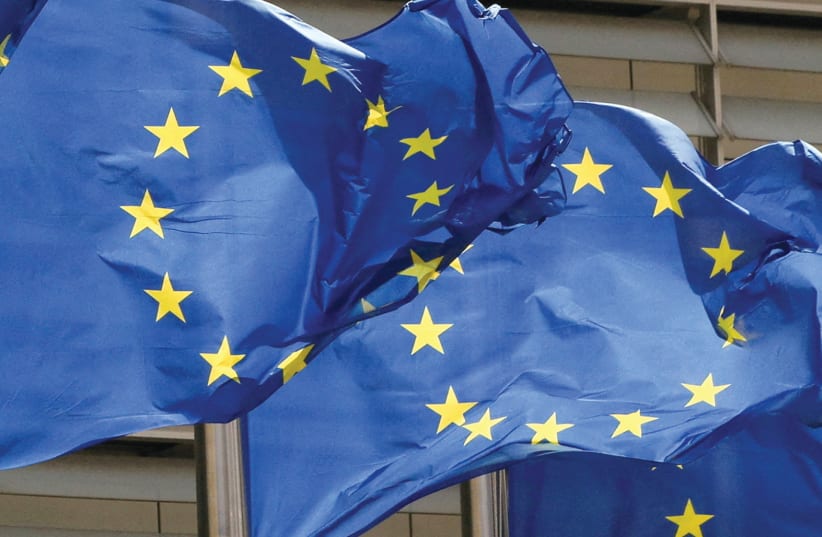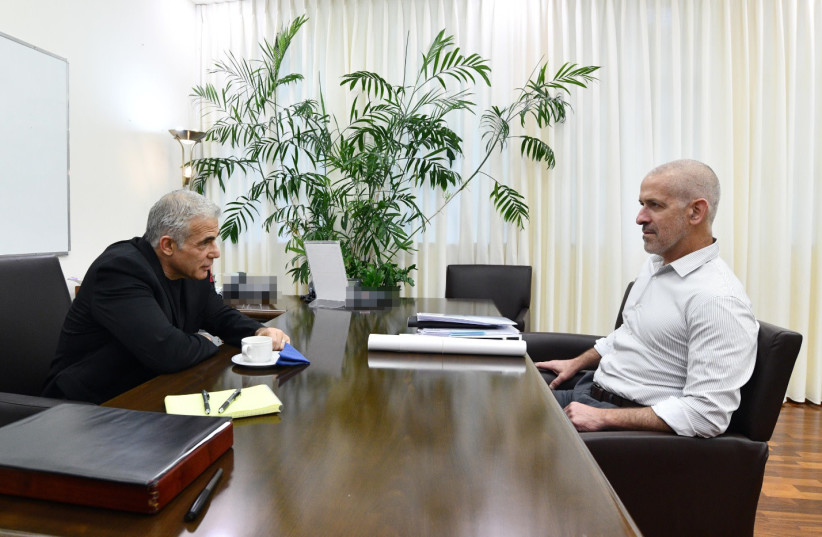Nine European states rejected Israel’s designation of six Palestinian NGOs as terrorist organizations, in a joint statement released on Tuesday.
Belgium, Denmark, France, Germany, Ireland, Italy, the Netherlands, Spain and Sweden came out against the Israeli decision, announced in October. The Shin Bet (Israel Security Agency) and the Foreign Ministry said then that Palestinian NGOs Addameer, Al-Haq, Bisan Center, Defense for Children International Palestine (DCI-P), Union of Agricultural Work Committees (UAWC) and the Union of Palestinian Women’s Committees (UPWC) had extensive enough ties to the Popular Front for the Liberation of Palestine to be considered branches of the group, designated as terrorists by the US, EU and others.
“No substantial information was received from Israel that would justify reviewing our policy toward the six Palestinian NGOs on the basis of the Israeli decision to designate these NGOs as ‘terrorist organizations,’” the statement reads.
“Should evidence be made available to the contrary, we would act accordingly. In the absence of such evidence, we will continue our cooperation and strong support for the civil society in the [occupied Palestinian territories]. A free and strong civil society is indispensable for promoting democratic values and for the two-state solution.”
Among the items the Israeli government has made public to show the connection between the organizations and the PFLP is a video from the Palestinian Wattan Media Network of leading figures in the NGOs, including Khalida Jarrar and Abdullatif Ghaith of Addameer, Shawan Jabarin of Al-Haq, Gebril Muhamad of Bisan, and Ahmad Sa’adat of the UPWC, at an event in a hall with dozens of PFLP flags hanging.
Background
The event in Ramallah honored PFLP political bureau member Rabah Muhanna, who according to information posted by the PFLP, took part in the establishment of Addameer, UHWC and UAWC.
In 2019, the PFLP planted a bomb, killing 17-year-old Rina Shnerb and injuring her relatives.
"Should evidence be made available to the contrary, we would act accordingly. In the absence of such evidence, we will continue our cooperation and strong support for the civil society in the [occupied Palestinian territories]"
The joint statement
UAWC’s Finance and Administration director Abdul Razeq Farraj was indicted in October 2019 on four counts, including aiding an attempted murder in the terrorist attack on the Shnerb family. Farraj’s indictment refers to Ubai Al-Aboudi, a PFLP member working with Farraj on recruitment, and the UAWC’s Monitoring and Evaluation Officer until April 2019. The commander of the PFLP terror cell that prepared and detonated the bomb was Samer Arbid, and accounted for UAWC at the time of his 2019 arrest.
The Netherlands previously acknowledged the UAWC’s ties to the PFLP, and that Dutch funds paid the salaries of the NGO’s employees that carried out the attack that killed Shnerb.
“When European officials say they see ‘no evidence’ of the terror links of their Palestinian NGO clients, they are ignoring numerous open-source verifiable examples,” said Prof. Gerald Steinberg, president of NGO Monitor that researches the activities and fundings of organizations. “There is no excuse for this blind abuse of taxpayer funds.”

